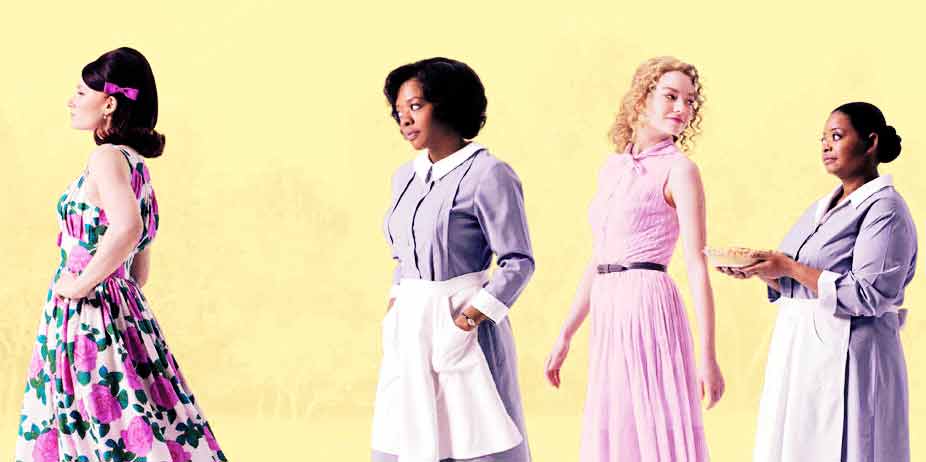
The Help (2011)
I had never heard of this best-selling book until trailers for the film came out. I promptly borrowed the novel and spent several evenings laughing and crying over the antics that unfolded on the pages. The film does the book justice.
Life as a black woman in Jackson, Mississippi is difficult in the 1960's. You are expected to raise the children of the white women that employ you, do all the cleaning and cooking, and look the other way when they make racist remarks in front of you. Aibileen (Viola Davis) has borne it with tolerance in silence, content in her role as the primary giver of love to little Mae Mobley, the three-year-old daughter of her employer. Aibileen is the only attention the child gets, and looks on her as her "real" mama. Her best friend Minnie (Octavia Spencer) is employed with the mother of Hilly Holbrook (Bryce Dallas Howard), the queen bee of society who has just conceived an initiative that she hopes will become more commonplace -- a law that insists that "the help" must use separate bathrooms in private residences.
Into this ruckus comes Skeeter (Emma Stone), fresh back from college and desperately wanting a career as a writer, but the only position open at the local newspaper is handling writing a housekeeping advice column. Knowing nothing about housekeeping, Skeeter appeals to Aibileen for assistance ... and thus begins an association that complicates further as each woman is tested for courage, and together devise a daring plan that could backfire on them all. While there has been a great deal of controversy about this film since its release, basically it is a heartwarming story about women reaching out across social barriers to help one another. In terms of being an adaptation, it is a good one -- there are things that are changed, at times a bit dramatically, from the source material, but it retains the heart and emotional impact of the original. It also benefits from the perfect cast. I was particularly delighted with the casting of Emma Stone, because she is just how I imagined Skeeter -- she has the proper amount of spunk and awkwardness. But really, all the women turn in magnificent performances.
Where content is concerned, there is unfortunately some bad language but not as much as in the book -- Jesus' name is abused a handful of times, and about six uses of GD turn up, along with mild profanities. The s-word is used eight or so times, all revolving around a particular incident in which a maid taunts a woman by telling her that she baked her feces in a pie and fed it to her. (Whether or not the incident is true, it's heavily implied that it is.) Derogatory racial terms are used a few times. Thematic elements include overt racism, references to a black man being shot and killed, and the implication that a woman is being abused by her husband; we hear her pleading with him over a phone line, crying, and then she later turns up with a black eye. Blood is briefly shown on the floor of a bathroom; we learn a woman has had a miscarriage (and three previous ones). References are made to having gotten pregnant outside marriage; one character often wears revealing clothing (short shorts, cleavage-bearing tops, and tight dresses). There is a bit of smoking (and a joke about how one day, they'll figure out that it kills people) and drinking (Skeeter's date drinks too much and becomes obnoxious).
Christianity plays a role in the storyline -- Hilly uses it as an excuse to be cruel in refusing to lend money to her maid (she also accuses people falsely of stealing from her) but Aibileen faithfully attends church, talks about God teaching her to forgive, and cites her decision to be courageous to her pastor's sermon. There are a lot of meaningful moments between these women -- instances in which innocence is gently broken, honesty is shared, and they are reminded of their unique beauty and worth. Minnie becomes a saving light in an unexpected way to a woman who desperately needs her, and Skeeter inspires a group of women to stand up for themselves. One of the underlining themes in the film is friendship, as it develops between a maid and her employer, the two women working on their secret project, and severs between other people as they come to realize that their values are decidedly different. Courage is found, convictions are acted on, and even a few hearts are healed along the way. It's a shame that the coarseness of the subplot (involving the pie) and the bad language that revolves around it makes it difficult to entirely recommend, but I found it a touching film with just as many powerful moments as the book. Put aside the controversy raging in the press and see it for yourself.
